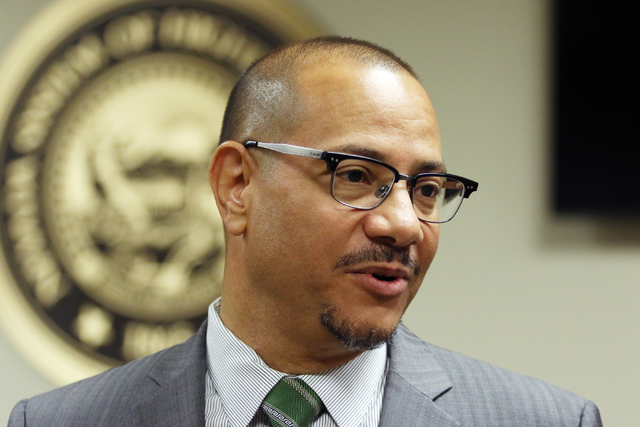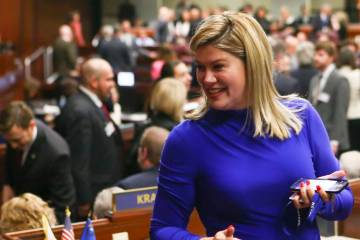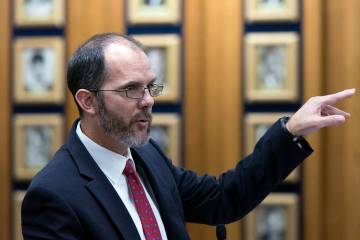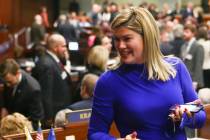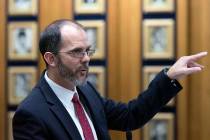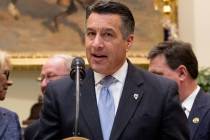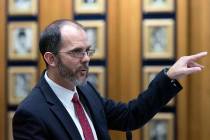Assembly bill targets Nevada higher ed system for more oversight
CARSON CITY — Assemblyman Elliot Anderson wants more oversight of the Nevada System of Higher Education and protections for government whistleblowers who disclose falsehoods or illegal acts by their employer.
Anderson, D-Las Vegas, said the genesis of Assembly Bill 390, heard Thursday by the Assembly Committee on Government Affairs, is last year’s resignation of former Chancellor Dan Klaich following an investigation by the Review-Journal that found a report portrayed as written by an independent consultant was orchestrated by the chancellor’s office.
“The writings of the system of higher education were passed off as those of an independent consultant,” Anderson said.
Legislators, he said, were deliberately misled.
Anderson said given time constraints during legislative sessions, legislators need to be able to trust that what bureaucrats present to them is true.
“That is at the heart of this legislation,” he said. “We need to take steps to protect that process.”
AB390, jointly sponsored by Sen. Joyce Woodhouse, D-Henderson, is a two-part effort to reform Nevada’s higher education system. The other aspect, Assembly Joint Resolution 5, would remove the Board of Regents from the Nevada Constitution, giving lawmakers the authority to enact changes.
The bill heard Thursday would apply to all state agencies, not just higher ed. It would prohibit retaliation against employees who communicate directly with legislators or their staff about false information disseminated by an employer or evidence of illegal activity.
Another provision would set up a 12-member Spending and Government Efficiency Commission to examine the higher education system and report its findings.
It also proposes paying regents an annual salary of $20,000. Board members currently are elected and receive $80 for each meeting they attend, as well as per diem.
Chancellor John White and other university and college presidents spoke against an oversight commission.
White said that while he has no qualms about the administration office undergoing an outside review, he questioned whether an outside commission could offer adequate analysis when talking about highly specialized curriculum.
Questioning need
Chet Burton, president of Western Nevada College, questioned the need for an oversight commission. He said since 2008 the college’s budget was cut by 42 percent, forcing them to be efficient with spending.
Anderson, however, said the higher education system should be treated no differently than other agencies.
“If every other state agency can go through this process, why not the System of Higher Education?” he asked.
“It’s become too insular and everyone could use an outside look-in,” he said.
No action was taken by the committee Thursday.
Contact Sandra Chereb at schereb@reviewjournal.com or 775-461-3821. Follow @SandraChereb on Twitter.
Provisions of Assembly Bill 390:
— Prohibits reprisal against state workers for actual or attempted communications with lawmakers or their staff about false information or illegal activity by an employer.
— Pays members of the Board of Regents a $20,000 annual salary.
— Establishes a 12-member SAGE commission to review the efficiency of the Nevada System of Higher Education.



